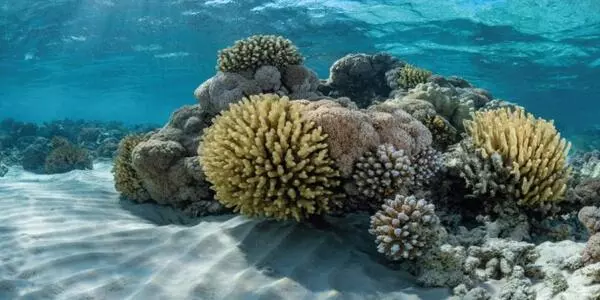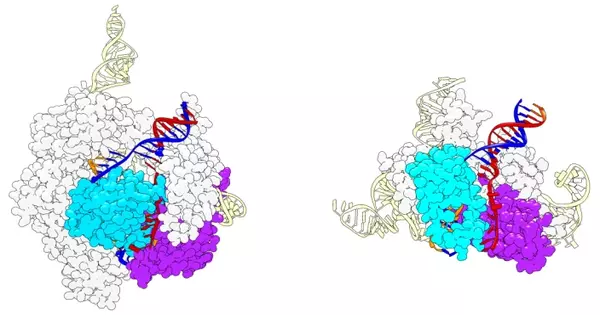The use of CRISPR/Cas9 to discover a key gene involved in the evolution of coral skeleton formation represents a significant advance in our understanding of coral biology. Coral reefs are incredibly diverse and provide critical habitat for a wide range of marine species. Understanding the genetic mechanisms underlying coral skeleton formation can help us better understand the resilience and adaptation of these vital ecosystems.
The new study, led by Carnegie’s Phillip Cleves, employs cutting-edge CRISPR/Cas9 genome editing tools to identify a gene essential for stony corals’ ability to build reef architectures. It appears in the Proceedings of the National Academy of Sciences.
Stony corals are marine invertebrates that form large skeletons that serve as the foundation of reef ecosystems. A quarter of all known marine species live in these biodiversity hotspots.
“Coral reefs have tremendous ecological value,” Cleves said. “However, they are in decline as a result of human activity. Carbon pollution in the atmosphere both warms the oceans, causing fatal bleaching events, and changes the chemistry of seawater, resulting in ocean acidification, which impedes reef growth.”
Coral reefs have tremendous ecological value. However, they are in decline as a result of human activity. Carbon pollution in the atmosphere both warms the oceans, causing fatal bleaching events, and changes the chemistry of seawater, resulting in ocean acidification, which impedes reef growth.
Phillip Cleves
Excess carbon dioxide released into our atmosphere by the combustion of fossil fuels is taken up by the ocean and reacts with the water to form an acid that is corrosive to coral, shellfish, and other marine organisms over time.
Stony corals are vulnerable to ocean acidification because they build their skeletons through the accretion of calcium carbonate, a process known as calcification, which becomes more difficult as the pH of the surrounding water decreases. Because of the importance of coral skeleton formation in reef formation, understanding the genes that control the process and how it has evolved in corals has been a major research focus.
For several years, Cleves’ lab has used the Nobel Prize-winning CRISPR/Cas9 technology to identify cellular and molecular processes that could help guide coral conservation and rehabilitation efforts. For example, they previously revealed a gene that is critical to how a coral responds to heat stress — information that may help predict how corals will handle future bleaching events.

His team, which included Carnegie’s Amanda Tinoco, used genome editing tools to discover that a specific gene called SLC4 is required for young coral colonies to start building their skeletons. It encodes a protein that transports bicarbonate across cellular membranes. SLC4 is only found in stony corals and not in their non-skeleton-forming relatives. These findings suggest that stony corals evolved skeleton formation using the novel gene SLC4.
“By applying cutting-edge molecular biology techniques to pressing environmental problems, we can reveal the genes that determine ecologically important traits.” Cleves came to a conclusion. “By developing these genetic tools for studying coral biology, we will be able to greatly improve our understanding of their biology and learn how to mount successful conservation efforts for these vulnerable communities.”
Cleves was chosen earlier this year by The Pew Charitable Trusts as one of seven recipients of the 2023 Pew Fellowship in Marine Conservation and the organization’s first Marine and Biomedical Science Fellowship. This program funds studies that use techniques or technologies more commonly found in biomedical science to improve marine conservation.





